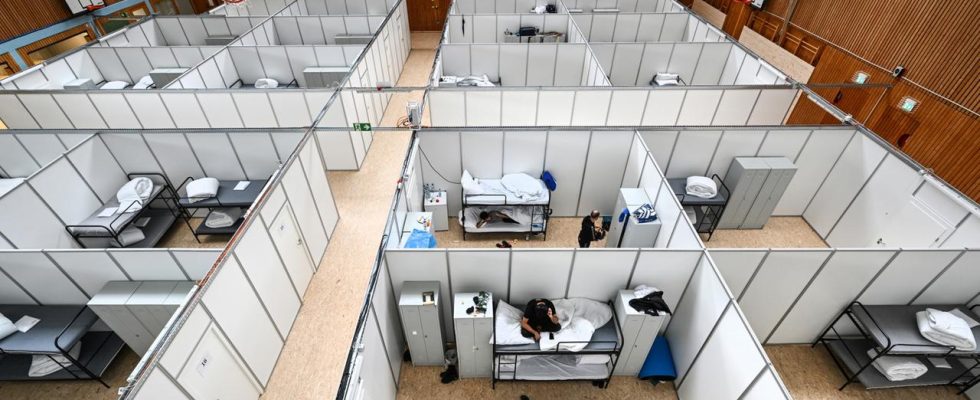More money, more control – that’s what the state leaders are demanding before the planned refugee summit with the federal government. Interior Minister Faeser is critical of a higher federal contribution to the costs.
Before the refugee summit planned for next Wednesday, the prime ministers of the federal states have increased the pressure on the federal government.
In an interview with the editorial network Germany, Hesse’s head of state Boris Rhein called for more money from the federal government for cities, municipalities and districts in view of the costs. “The federal government must at least double its share of currently 2.75 billion euros,” said the CDU politician – otherwise accommodation and integration cannot be financed in the long term.
federal government must “pull your head out of the sand”
Rhein also called for an agreement at the summit, according to which the federal share should be based on the costs of the influx of refugees. “From now on it must also be clear again: If the number of refugees increases, the sum of the federal government will increase,” emphasized Rhein. Because the federal government alone is responsible for controlling and limiting migration.
The federal-state meeting must send out a clear signal “that the federal government is finally pulling its head out of the sand, recognizing the need of the municipalities and providing help as quickly as possible”.
Kretschmann: Don’t leave countries alone with costs
Critical tones also came from the prime ministers of the traffic light parties in the run-up to the meeting. Baden-Württemberg’s state leader Winfried Kretschmann from the Greens told the “Bild am Sonntag” (“BamS”): “The federal government must live up to its responsibility and must not leave the states and municipalities alone with the additional costs of the refugee crisis.”
Saarland head of state Anke Rehlinger (SPD) suggested using “unused funds from housing subsidies” to “create affordable housing that can also be used temporarily to accommodate refugees”.
Söder for sanctions for non-redemption
Bavaria’s Prime Minister Markus Söder, on the other hand, advocated cutting aid to countries of origin that did not take back rejected asylum seekers. The CSU politician emphasized to the “BamS”:
We stand by the fundamental right to asylum. But in the case of countries that do not agree to an orderly repatriation, we must also consider cuts in development aid in the future.
There have been similar demands in the past. Söder also said that municipalities and states are at their breaking point when it comes to migration. “We need clear financial support for the municipalities, better control of immigration and more accommodation options from the federal government.” In addition, the number of safe countries of origin must be expanded.
Saxony-Anhalt’s Prime Minister Reiner Haseloff (CDU) also sees the federal government as having a greater responsibility when it comes to the influx of migrants: “The federal government must finally ensure that immigration is controlled. If we in Germany are unable to act, trust will undermine more and more in our democracy”, he warned in the “BamS”.
Faeser expects a solution within the EU
Federal Interior Minister Nancy Faeser (SPD) was confident before the meeting. She sees good chances of finding a solution to migration policy within the EU soon. She said to “BamS”: “I want us Europeans to finally act together – despite all resistance”.
The “year-long mutual blockade in the EU” has already been broken through, Faeser continued. The main focus is on the proposal for asylum centers at the EU’s external borders, from where asylum seekers can also be sent back or distributed fairly. So far, however, Faeser has been skeptical about calls for the federal government to contribute more to the refugee costs of the federal states and municipalities.

